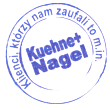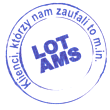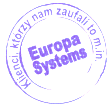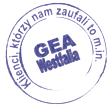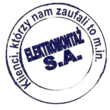Frequently asked questions
Below you will find answers to the questions most frequently asked by future course participants: about dates, prices, training programmes. We encourage you to read this information. In case you do not find the answers to your questions, we encourage you to contact us by e-mail or telephone.
Substantive and organisational issues
Are practical sessions included in the course price?
Yes, the course programme includes both theoretical classes, where participants learn about the construction of machines, principles of safe operation, guidelines for dealing with breakdowns, etc., as well as practical classes. These take place at the Centre's premises, on its own manoeuvring area or, in the case of training organised for companies in other cities, at a location chosen by the client.
What are the practical classes like?
During the course, students learn about the construction of machines in practice, how to operate them and how to prepare them for use. The instructor pays attention to the safe use of the equipment. The classes are oriented towards preparing for the practical part of the external exam. The instructor asks the participants questions that may appear on the exam, and conducts discussions similar to those held by examiners.
The number of hours depends on the group to which the candidate operator or maintainer is assigned. This is because different people need more or less time to learn how to operate a machine. Those who have no experience at all can require up to 36 hours of instruction, including 16 practical hours, while those who have already worked with the equipment or have a certificate that needs to be renewed can acquire the necessary knowledge in just a few hours. The time needed is estimated at the registration stage, based on a telephone interview with the Centre's staff. It may happen that the instructor, seeing the progress of the participant and his/her level of advancement, will shorten the time of practical classes.
What equipment is used during practical sessions?
We have equipment that is representative of each type, such as A- and B-lifts, scissor- and cantilever-lifts, free-running and self-propelled. Training for forklift and telehandler operators takes place on variable reach and lift trucks. We also have at our disposal regular Toyota, JCB, Linde and Jungheinrich reach trucks. For crane operators We organise classes with the use of gantry cranes. Our equipment is available for training in Warsaw (Ursus), Krakow and Katowice.
Does the course end with an exam?
Most courses are followed by an exam conducted by inspectors from external bodies: UDT, SEP or others. The centre organises the exam for its trainees: they register for the exam, set the dates and send reminders before the date of the exam.
Please note that for some training topics and some groups an exam is not required. Please check the information on the course description page before registering.
What does the examination look like?
The external examination consists of a practical and a theoretical part. The theoretical part takes the form of a knowledge test (closed questions), while in the practical part the candidate is interviewed at the device. In the course of the interview, the examiner may ask about the preparation of the device for operation, selection of the device, safe use, operation, emergency procedures.
Who issues the licence to practise?
The certification issued on the basis of a passed examination is carried out by external bodies: Office of Technical Inspection, Transport Technical Inspection, Association of Polish Electrical Engineers or others, depending on the type of training.
The waiting time for the issuance of entitlements after passing the examination should be up to 7 working days. It should be borne in mind that in the case of a heavy workload in the Office, this time may extend up to 30 working days.
For what period are allowances issued?
Depending on the type of equipment, certificates of competence are issued for a period of between 5 and 10 years. The centre will, as far as possible, inform you in advance by email when it is necessary to renew your qualification.
Are the rights recognised abroad?
Qualification certificates issued by the Office of Technical Inspection, Transport Technical Inspection or Military Technical Inspection may be recognised in countries with a similar system of regulation of the profession, but do not have to be. The European Union has a Directive on mutual recognition of qualifications. We know from experience that in countries such as Norway or Switzerland, Polish qualifications can be exchanged for those of other countries. Unfortunately, in some countries UDT authorisations The certificates are not widely known and employers there are not always willing to accept them, even after translation. For this reason, we recommend that you purchase an English language qualification certificate from UDT - CERT in addition to your qualification certificate. We also recommend that you purchase a certificate of completion of training according to international standards, which is a widely recognised document.
Can allowances be withdrawn or withheld?
Yes, the body issuing qualification certificates may withdraw them if it considers that the holder is in breach of work safety regulations or rules.
What support does the Centre provide in terms of exam preparation?
Supporting participants to prepare successfully for the exams starts at the registration stage. This is when you will be interviewed to determine your level of knowledge and skills and placed in the correct group to make the most of your training time. Before, during and after the class, participants' knowledge is continuously checked: the instructor asks questions, conducts tests and engages in the class. Practical knowledge is also checked.
All participants also have access to a learning platform that contains materials to help them structure their knowledge and study for the exam. This includes training scripts, videos and sample tests based on the available examination question database.
How do I choose a group with the right level of experience?
Courses are organised for people who have no experience in operating a particular type of machine and for people with experience. When signing up for a course we ask you to provide us with your education, work experience and qualifications. On this basis we can offer you a suitable group - one in which you will learn to operate or maintain the equipment from scratch, or one in which you will complete or update your knowledge.
A similar principle operates when it comes to organising courses for companies. In the case of such training, the employer provides information on his employees, and specialists from the Centre compose training programmes on this basis and plan the number of hours needed.
Are the technical training courses organised by the Centre and the exam difficult? Do participants have a lot of knowledge and skills to acquire?
This type of training is not easy. Participants must acquire the necessary knowledge and skills to be able to take and pass the exam as well as possible. The process of verifying qualifications is impartial and is periodically modified and updated by external entities. The centre makes every effort to improve education standards. We constantly adapt our training programmes to current regulations and standards. The scope of the issues covered is agreed with the units verifying qualifications and coincides with the examination requirements.
How long does the training last?
The number of hours varies for each training topic. Detailed information can be found in the description of the respective training course. Please note that the number of hours within a topic can vary - there are shorter and longer courses, for beginners and for experienced people.
What training dates are available?
Training dates are available at platformedukacji.pl. If a larger group is interested in training (for example, company employees), it is possible to arrange additional dates, sometimes even overnight. Most training courses start a few times a month, every one or two weeks.
Can classes be attended at weekends or in the afternoons?
Yes, courses are also organised at times convenient for working people: on Saturdays, Sundays or weekday afternoons.
How do I enrol on the course?
For individual customers: please contact us Call or e-mail us to establish the available dates and price of the training. After providing their data, the customer receives a link to make a payment via Przelewy24 or BLIK. Making the payment means registration for the course on the selected dates. The prospective student receives login details for the training platform and information on the date and location of the course. A reminder is sent before the class.
For business clients: employers who wish to refer employees to the course can contact the Centre by phone or email to arrange details. Please have your employees' details and information about their education and qualifications ready. Payment is possible on the basis of a pro-forma, we also offer deferred payment (based on additional arrangements). We agree with the customer the date, location and scope of the training.
When I sign up for training, can I also sign up colleagues?
Yes, our registration system allows an individual to be enrolled as an entity to enroll other individuals. They will then be treated as subject to that entity or treated as separate entities.
How much do the courses cost?
Course prices vary depending on whether it is an open or closed (company-only) course, as well as the date for signing up for classes. The principle is similar to that of a low-cost airline - course prices can be lower or higher depending on whether there are still a large number of places available or whether places are already running out.
Generally, the cost of attending open courses is higher than closed courses. In the case of training organised for companies, we can offer lower, flat-rate rates due to the fact that we do not have to spend time and labour on assembling a group. Prices for company training are also lower when a longer partnership is established.
What are the requirements for candidate operators?
Applicants for the position of operator or maintenance person must be of full age, have completed at least primary school education and be in good health. The absence of health impediments to exercising the occupation shall be verified by a declaration on the basis of a certificate from an occupational doctor.
In the case of persons seeking qualification in the maintenance of material handling equipment, we pay particular attention to the need to meet minimum requirements in terms of knowledge and skills with:
- Basic electrical engineering, e.g. reading wiring diagrams
- Mechanics - issues relating to materials science
- Hydraulics - reading hydraulic diagrams
- Basics of reading kinematic diagrams
At our centre, we can further train the candidate operator in these areas, offering, for example, Group 1 training in the operation and supervision of energy equipment.
What is included in the course price in addition to the tuition?
In the course price we provide:
- Training materials on the learning platform: training contents, instructional videos, test questions
- Issue of a simplified training certificate
- Access to different types of equipment during practical sessions
- Help with accommodation, organisation of meals
- During breaks: coffee, tea, biscuits
- Essential safety equipment
Are online classes organised?
Yes, the theoretical part of the classes can be organised online. Classes are then conducted as webinars, and the content taught is the same as in the classroom. In the case of some training courses, it is necessary to add a practical part.
Can training be carried out at the customer's premises?
Yes, we can organise training at your premises if you wish. The centre has the appropriate statutes and teaching staff. We expect only the minimum requirements to be met: provision of didactic and technical facilities. The client is asked to guarantee safety conditions, in particular, access to efficient technical equipment with a valid maintenance inspection and periodic technical check-up.
I want to take part in a webinar training course. What are the hardware requirements?
Our recommended minimum hardware requirements are a computer or laptop no more than 6/7 years old, with Windows or Macintosh installed. Smartphones and tablets are allowed to be used for training. Our system does not require installation of additional software - a web browser such as Chrome or Mozilla Firefox is sufficient. After purchasing the training, the participant receives a link containing a coded password and login. The system also sends SMS and emails with fast login data.
























